The Contextualizability of Anglicanism
Here's some of the text from a workshop The Reverend Doctor Chris Royer, Executive Director of Anglican Frontier Missions, did for Moody Bible Institute:
Let me say off the bat, Anglicanism has had its fair share of warts, pimples, imperfections, and blemishes throughout church history. So the purpose of this virtual seminar is not to promote Anglicans as the godliest or most faithful denomination in the last five hundred years. I’m also not saying that Anglicans have been at the cutting edge of frontier missions since World War II, cause we haven’t. And I’m categorically not advocating for Anglicans to go it alone in missions…without the global body of believers. We Anglicans are just one part of Christ’s global body.
But what I am contending, is that God, in his grace, has deposited a few really important spiritually formational tools in the Anglican tradition that all Christians can deploy in frontier missions. Through the grace and mercy of God, Anglican Christians have received them, developed them, transmitted them, and continue to utilize them. The three “tools” I’ll talk about today, that are super effective in discipleship of Christians from Muslim, Hindu, Buddhist, and tribal background are the Prayer Book tradition, liturgy, and sacraments. The Prayer Book tradition, liturgy, and sacraments. So let’s start with tool #1: the perennial tradition, that is, the tradition associated with and included in the Anglican Book of Common Prayer
Twenty-nine years before I became an Anglican Christian, I became a Christian. And it was awesome getting to know Jesus reading his word and I was so excited about my faith I decided to go to a Christian college, Wheaton College, to learn more about the Bible. At Wheaton College, missionaries came every week and shared about places and peoples that did not yet have an established church. That is, they shared about Frontier Missions, spreading the gospel where the church is not, and yes, there are still places and people groups on the globe today with miniscule to a non-existent Christian presence. Missions experts call these people Frontier Peoples, that is, ethnolinguistic nations with less than 0.01% Christian presence.
There are 5,000 such Frontier People Groups comprising almost 2 billion people, with less than 0.01% Christian presence. These people groups are the heart of AFM’s missions. And God called me, in college, to one such frontier people in the Middle East.
At 23 years-old, I landed in that country, spent three years learning the language, and then embarked on church planting. In God’s mercy, we saw Muslims put their faith in Jesus Christ and we began meeting on Sunday mornings in our apartment’s living room for church for worship.
One day a believer of six months, we’ll call him “Abdullah”, approached me and said, “Chris, I had been a Muslim all my life. Now that I'm a Christian, would you tell me how many religious feasts and fasts we have?” I knew exactly where he was coming from.
In Islam there's 30 days of religious feasting during the holiday of Ramadan. And yes Ramadan is fasting from sunrise to sunset but I tell you when the sun goes down. Oh, Oh, Oh! There's scrumptious feasts there are lots of visiting with families and friends, and it's a party-like, celebratory atmosphere. So there's 30 holidays, or Holy Days with Ramadan alone. And then you throw in the other two major festivals, Eid al-adha and eid-al fitr, and you’re at 40 religious holidays, without even getting into the minor religious holidays.
Now, as a non-liturgical Christian, who loved Jesus and had a Master’s in NT Theology, I’m straining to come up with Christian holy days beyond Christmas and Easter. That’s all I got. So I gave him those two. And he looked at me almost incredulously as if to say… is that all Christianity has? What’s wrong with Christianity?
That question…that interaction was one of among many things that God used to launch me into examining how I could better contextualize the Christian message to the Islamic culture.


